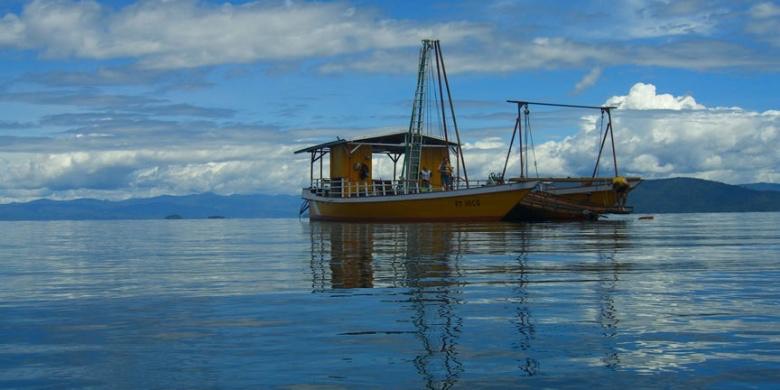
The Towuti Drilling Project: Paleoenvironments, Biological Evolution, and Geomicrobiology of a Tropical Pacific Lake is an international scientific collaboration based at Brown University, New York and Institut Teknologi Bandung that seeks to drill long sediment cores from Lake Towuti, Indonesia for paleoclimate, paleoecological, and geomicrobiological research.
Lake Towuti’s location in central Indonesia provides an important opportunity to reconstruct long-term terrestrial paleoclimate change in a crucially important yet understudied region- the Western Pacific warm pool, heart of the El Niño-Southern Oscillation. Lake Towuti has high rates of floral and faunal endemism and is surrounded by one of the most diverse tropical forests on Earth making it a hotspot of Sotheast Asian biodiversity. The ultramafic (ophiolitic) rocks and lateritic soils surrounding Lake Towuti provide ferruginous metal substrates that feed a diverse, exotic microbial community in the lake and its sediments, potentially analogous to the microbial ecosystems that operated in the Archean Oceans and on Mars. The Towuti Drilling Program will provide valuable new information to understand the climate, biological, and geomicrobiological evolution of this unique system. See Janelle Stevenson, Vegetation and climate of the Last Glacial Maximum in Sulawesi (2016).
Subfolders:
The Towuti Drilling Project (English)
The Towuti Drilling Project (Bahasa Indonesia)